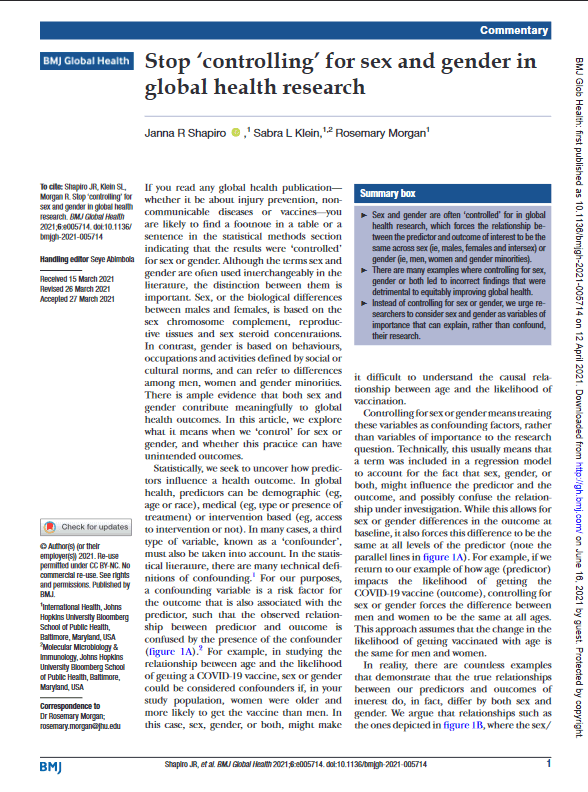If you read any global health publication—whether it be about injury prevention, non-communicable diseases or vaccines—you are likely to find a footnote in a table or a sentence in the statistical methods section indicating that the results were ‘controlled’ for sex or gender. Although the terms sex and gender are often used interchangeably in the literature, the distinction between them is important. Sex, or the biological differences between males and females, is based on the sex chromosome complement, reproductive tissues and sex steroid concentrations. In contrast, gender is based on behaviours, occupations and activities defined by social or cultural norms, and can refer to differences among men, women and gender minorities. There is ample evidence that both sex and gender contribute meaningfully to global health outcomes. In this article, we explore what it means when we ‘control’ for sex or gender, and whether this practice can have unintended outcomes…
Shapiro, J. R., Klein, S. L., & Morgan, R. (2021). Stop ‘controlling’for sex and gender in global health research. BMJ Global Health, 6(4), e005714.






